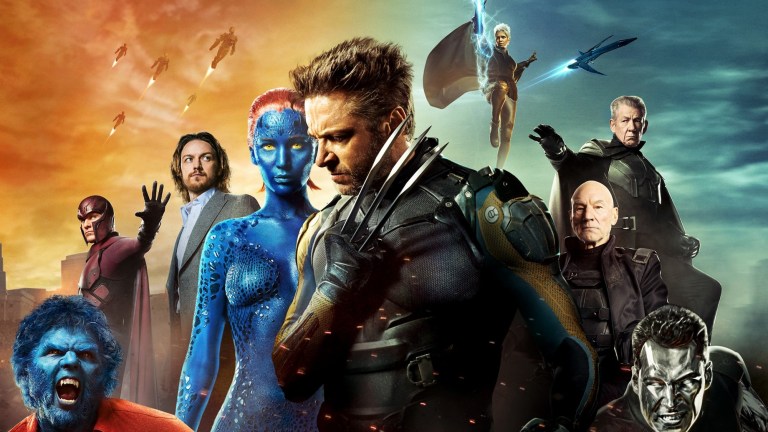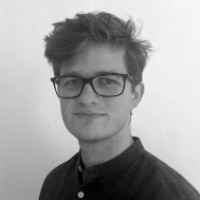The Most Important Lesson the MCU Can Learn from X-Men: Days of Future Past
X-Men: Days of Future Past was a high point for the X-Men movies a decade ago... and it was all downhill from there. Marvel should be wary of not repeating the same mistakes.

Let’s not beat around the bush; Marvel’s going through something right now. The superhero studio’s recent output has simply exhausted both casual and hardcore fans alike (lest we forget that not so long ago WandaVision, Falcon and the Winter Soldier, Loki, What If…?, Hawkeye, Black Widow, Shang-Chi, Eternals, and Spider-Man: No Way Home were released in a single year).
The sentiment appears to be close to universal too: amidst the avalanche of MCU content, there have been too few hits and too many misses. The fact that Bob Iger, Disney’s Chief Executive Officer, has publicly said that they’re going to change strategy and “slowly decrease volume” tells you everything you need to know.
So how does Marvel proceed from here? MCU mastermind Kevin Feige is seemingly planning to course-correct by re-assembling the Avengers sooner rather than later. Next year alone will see the release of Captain America: Brave New World, Thunderbolts, The Fantastic Four, and Blade, followed a few months later by a new Avengers—previously subtitled “The Kang Dynasty,” though that’s reportedly been abandoned.
It’s a sensible play. After all, Marvel’s team-ups have famously brought in masses of revenue and become some of the most beloved movies in the bulging franchise. Yet there are more than a handful of online rumors that suggest everyone who’s ever appeared in a Marvel branded movie—from Chris Evans’ Captain America to Fox’s original lineup of X-Men from 20 years ago—could appear in the repurposed Avengers film, which some suggest will be part one of a two-part Secret Wars adaptation.
Such a movie would be a colossal mistake.
Now, before you raise your pitchforks, asking in what world seeing Tobey Maguire’s Spider-Man alongside Hugh Jackman’s Wolverine would ever, ever be considered a negative, let me explain. Cast your mind back to the halcyon days of 2014. The superhero boom was mid-explosion, with The Avengers having made over a billion dollars in 2012.
Fox—back when it was not owned by Disney, but did in turn hold the license for the X-Men characters—wanted a bite of that pie, and fortuitously, they already had the perfect movie ready to go. Matthew Vaughn’s X-Men: First Class had been a critical and commercially successful quasi-reboot of the X-Men a few years ago in 2011. The film introduced new incarnations of already beloved characters like Professor Xavier and Magneto, and the director had plans for a trilogy; the first sequel would fully establish the new X-Men team while the conclusive installment would bring back the original X-Men for a timeline-twisting narrative.
“My plan was First Class, then the second film was a new young Wolverine in the ‘70s to continue those characters, my version of the X-Men,” Vaughn revealed in 2019. “So you’d really get to know all of them, and my finale was going to be Days of Future Past. That was gonna be my number three where you bring them all [back].”
Fox instead decided to rush ahead and ignore the middle installment. And while Days of Future Past stands today, 10 years after its release, as a still-excellent movie, there’s no getting past the fact that nearly every character from First Class—minus Michael Fassbender and James McAvoy’s versions of Magneto and Xavier, as well as Jennifer Lawrence’s Mystique—is jettisoned in favor of bringing back the golden oldies from the original X-Men movies a decade earlier. And even then, Fassbender and McAvoy were already living under the shadows of Ian McKellen and Patrick Stewart’s versions of the characters. In other words, bringing them back without allowing the new X-Men to settle with audiences took the wind from behind their already perforated sails.
When the next sequel came along, X-Men: Apocalypse, the sound reasoning behind Vaughn’s original game plan became clearer. The most groundbreaking and colossal event that could have happened to the X-Men—the crossover of the two teams separated by decades—had happened. Yet somehow we still didn’t know who these mutants truly were. Days of Future Past hadn’t allowed us to “really get to know them.”
Apocalypse’s attempts to course correct were also mishandled. Too many new X-Men, including Sophie Turner’s Jean Grey and Tye Sheridan’s Cyclops, among others, were squeezed into Apocalypse’s bloated runtime; Rose Byrne’s Moira MacTaggert, who debuted in First Class but sat out Days of Future Past, returned with some clumsy worldbuilding; and even Jackman’s Wolverine made a cameo that ground the narrative to a halt.
Vaughn said it best: “When I finished the Days of Future Past script with it ready to go, I looked at it and said, ‘I really think it would be fun to cast Tom Hardy or someone as the young Wolverine and then bring it all together at the end.’ Fox read Days of Future Past and went, ‘Oh, this is too good! We’re doing it now!’ And I said, ‘Well, what do you do next? Trust me you’ve got nowhere to go.’ Then they did Apocalypse, and it’s like… if you flip that round, even [Apocalypse] would have been better.” He then added, most pertinently of all, “Hollywood doesn’t understand pacing. Their executives are driving 100 miles per hour, looking in the rearview mirror and not understanding why they crash.”
Which brings us back to the current state of the MCU. We can all agree that Feige does indeed understand pacing. Just look at the slow, methodical construction of the Infinity Saga, which concluded in Avengers: Endgame almost a decade after it was first teased in 2012. However, after a studio-directed mandate to make Disney+ TV shows on streaming, there was understandably some wobble in his planning. I mean, just consider the huge shifts in the way Wanda Maximoff’s characterization between WandaVision and Doctor Strange in the Multiverse of Madness shifted. (Elizabeth Olsen has even said she had to explain the plot of WandaVision to the filmmakers behind Doctor Strange 2 because the Disney+ series wasn’t finished yet.
It’s no wonder Iger is keen to slow down production to get things right. Yet to get the MCU back on course, the answer is not to do a Days of Future Past and have dozens of cameos. We barely know half of the new Avengers. Take Shang-Chi, for instance. If his next appearance comes in whatever Avengers movie reaches cinemas in 2026, that’s five years since we last saw him on screens. Has nothing been happening in Ta Lo lately? Or how about Shuri, the new Black Panther? She’s only just taken on her brother’s mantle. We’ve barely seen her begin to fight. And then there’s the Eternals… actually, maybe the less about them, the better.
These characters have been established, sure, but we’ve barely scratched the surface of who they are or why we should care about them. More ominous still, we have absolutely zero idea of what they’re like together.
The next Avengers event, whether it’s Kang or some other threat, needs to bring these new superheroes together and focus on them without distraction. We need to see this group assemble and not be a side show to cameos for other characters. Otherwise, come the next Avengers, after the sugar rush of seeing all the old favorites together “one last time,” we simply won’t be invested in the new group, and Marvel will be facing another X-Men: Apocalypse situation. And we all know what that led to… Looking at you, Dark Phoenix.
These new Avengers, whoever’s on their team, need room to breathe and come into their own. And then, after all hell’s let loose and the timelines implode in Secret Wars, once that’s done, we will still care about the Avengers that are left and want to see more of their adventures, cameos and crossovers be damned.
